| 1 to 17 Piccadilly The first block at the
northern end of Piccadilly is made up of 5 buildings.
 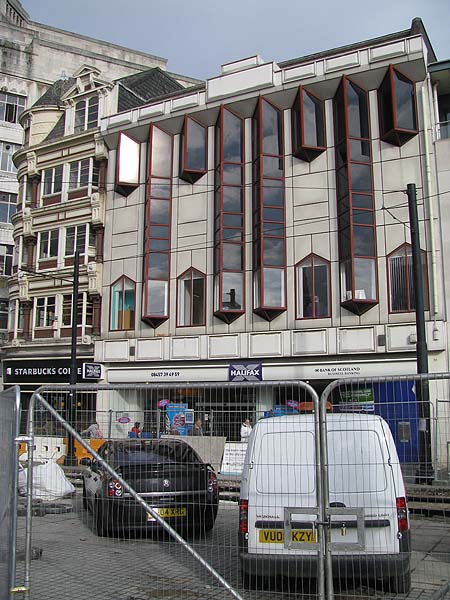  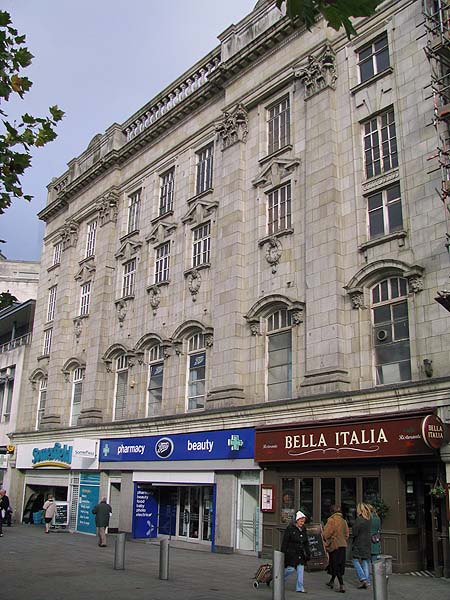    ******************** Number 1 Piccadilly, on the corner of Piccadilly and Tib Street across from Debenhams, was designed by James Lynde and built in 1897. Today it is home to a Starbucks Coffee Shop. John J Parkinson-Bailey in "Manchester - An Architectural History" describes it thus "Canted bays, panelled bands, pilasters and dormers all brightly painted."  As you can see below,
before Starbucks occupied the building it was a Coffee
Republic outlet.
 Beyond Starbucks are a
branch of The Halifax, Super Drug, Somerfields, Boots,
Bella Pasta and the Yorkshire Building Society.
After a redevelopment in the early 1900s the hotels were
swept away. 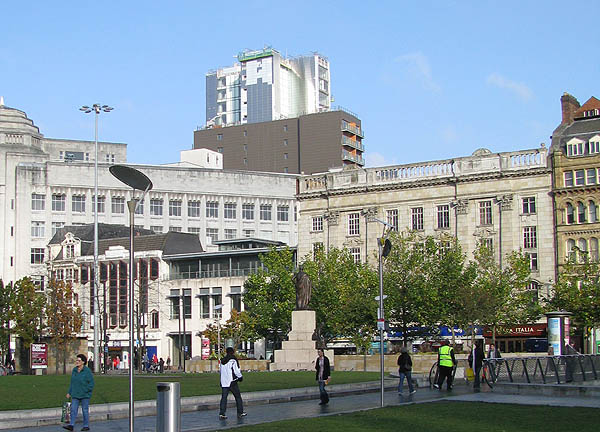   ********************** This is a least the third reincarnation of the block. In 1888 the block was there but the components were different. As you can see on the map below, two hotels dominated the block along with offices and warehouses on the upper floors. 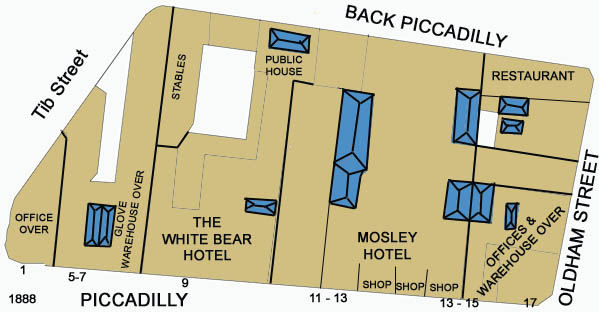 In 1910 the White Bear
Hotel was replaced by Charles Heathcote & W. A.
Thomas who created a café on the site for the Kardoma
Coffee Company. It was "Moorish" in design with
exotic looking turrets. At a later date it was
transformed into the "State Café" for Joe Lyons.
Today it is home to Super Drug.
The Mosley Hotel
(seen below)
 was replaced in 1922 by a "Beaux Arts" building by Percy Hothersall that was home to "The Piccadilly" cinema (seen above next to the Kardoma Cafe).  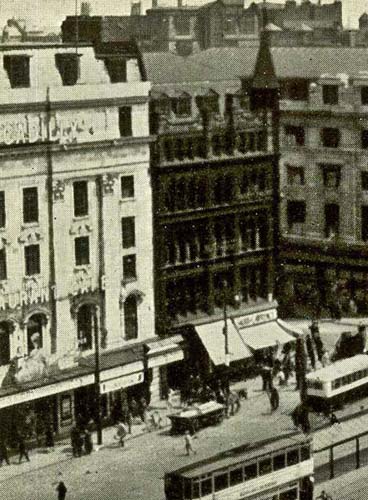 Clearly, in addition to a cinema the building contained a restaurant and a café. In the image
below you can see the Piccadilly Cinema showing
"Stand Up And Cheer" starring Shirley Temple and
released in 1934. You will also note that
the Kardoma Cafe is now a Lyons Cafe.
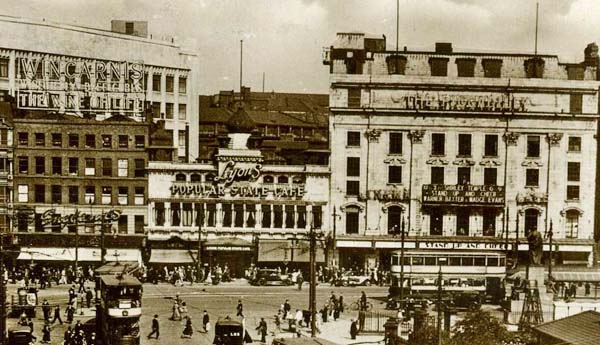 After the cinema
closed, the building was transformed into a
Littlewoods store.
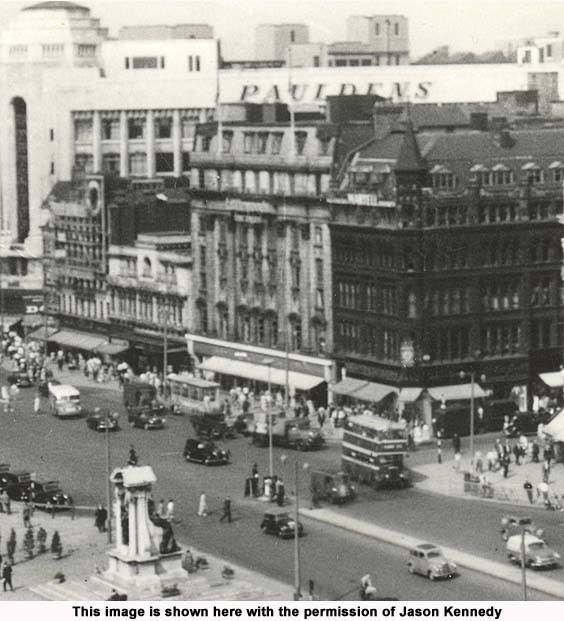 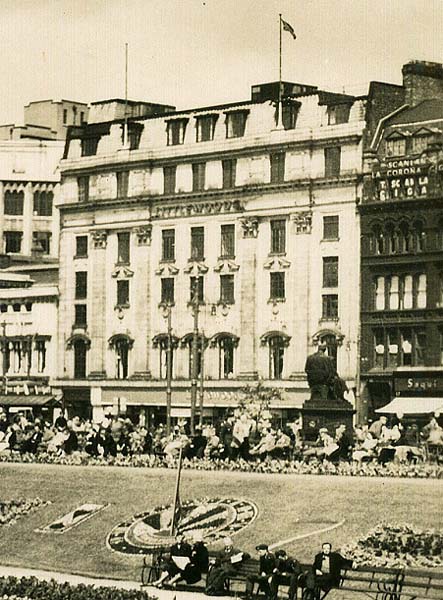 Today it is home to
Somerfields, Boots and Bella Pasta.
Number 17, the building at the Oldham Street end, by Royle & Bennett in 1881, has survived. Pevsner describes it as being Italianate in style. Here it is in the early 1900s. 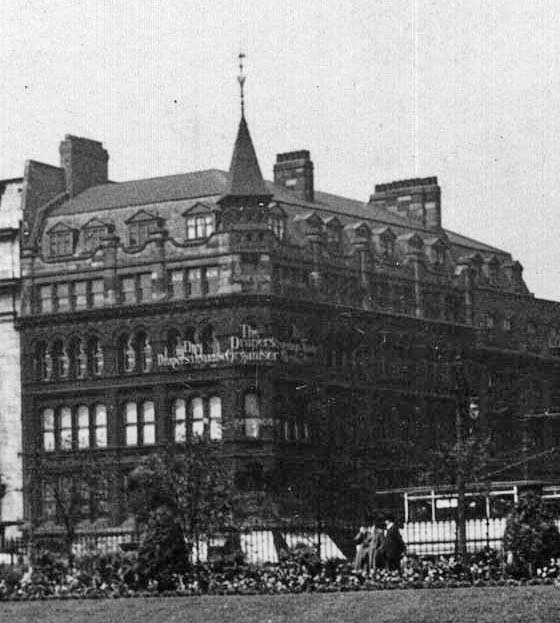 In my school days it was a Saqui & Lawrence jewellery shop with a clock extending out over the pavement.  Today it is home to a
branch of the Yorkshire Building Society.
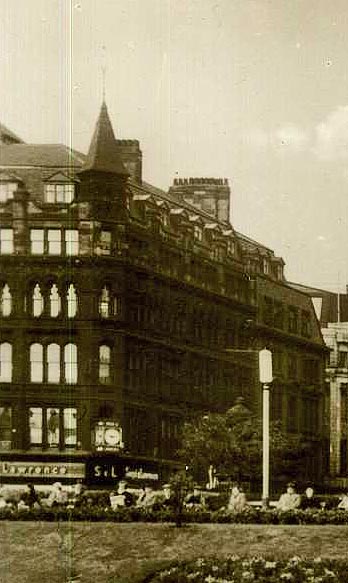 You can see all of those buildings to the right of the Debenhams building in the view below. The columns and dome of the adjoining cafe is clear to see.  Here they are
again with the name Saquis & Lawrence visible
if fuzzy on the corner and the awning outside the
Piccadilly cinema next door.
 Close Window |